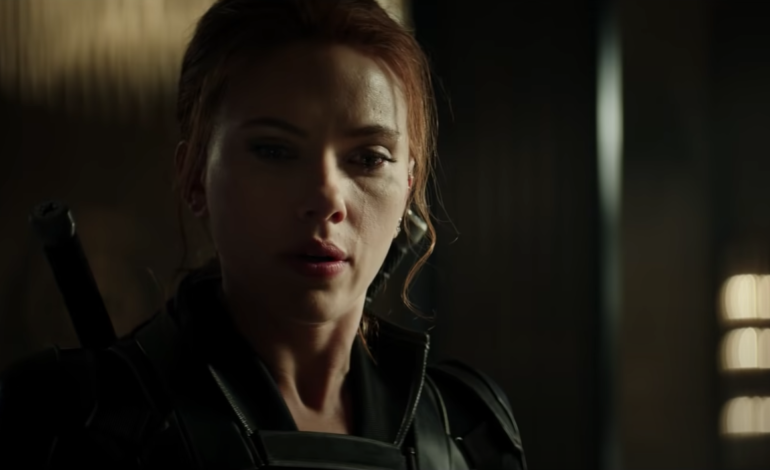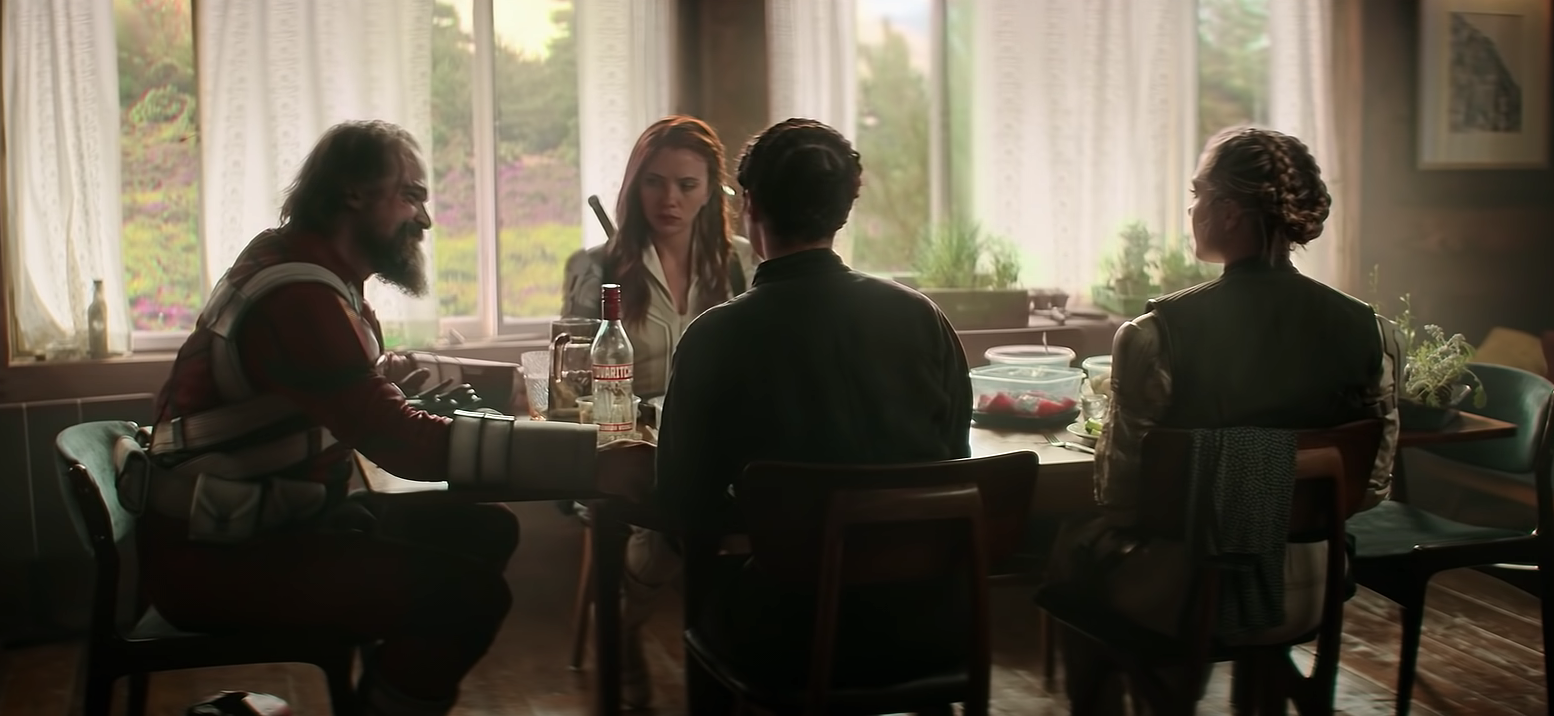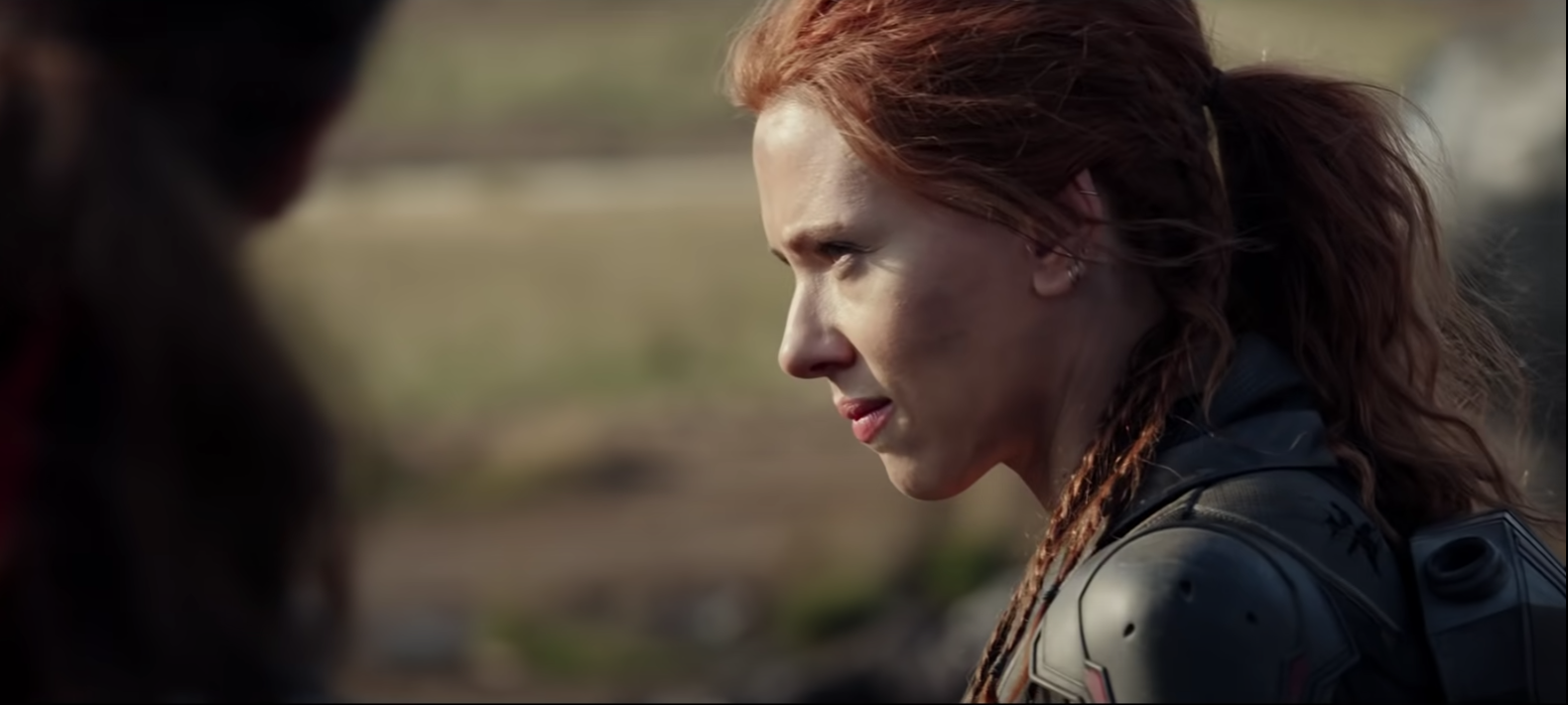

When you go into a Marvel movie, you more or less know what to expect: a mélange of fast-paced action, family-friendly humor, and jaw-dropping spectacle that are so perfectly balanced as to take your mind off the rigidly structured “hero’s journey” arc that they all invariably follow. The studio has mastered this formula so thoroughly that fans don’t need to worry about whether or not the latest superhero tale will be entertaining enough to be worth their time. Rather, they need to ask themselves where the latest entry will land closer on the rewatchability spectrum to rare missteps like The Incredible Hulk or more essential entries like Avengers: Endgame. And while 2021’s much delayed Black Widow may not quite rise to the top of the pile, it’s still a mostly satisfying action adventure that sticks the landing on almost all fronts, and only really suffers from its unfortunate placement in the greater franchise.
Set shortly after the events of Captain America: Civil War, international super-spy and frustratingly human Avenger Natasha Romanoff (Scarlett Johansson) finds herself on the run from the federal government. As if this wasn’t a big enough impediment to her normal routine of fighting crime and alien invasions, she is further burdened by a caseload of gas canisters that cure the neurochemical brainwashing that the evil Russian General Dreykov (Ray Winstone) is using to build his army of Widows. Things get even more complicated by the fact that the vials were sent by Natasha’s previously unmentioned “sister,” Yelena Belova (Florence Pugh). The pair are not biological sisters, of course, but were instead raised by the same undercover Russian agents posing as American as apple pie parents. In order to save the new generation of Widows and exact vengeance on their kidnapper, the sisters decide to spring their erstwhile “father,” The Red Guardian (David Harbour), from a snowy prison and fly him out for an unorthodox family reunion with their “mother” Melina (Rachel Weisz) on her remote pig farm.


In its later films, Marvel is often at its best when it deviates from its own established conventions. Whether that’s through genre exercises like highlighting sticking a relatively disposable character like Ant-Man in a classic heist caper, shedding Thor’s antiquated theatricality for the over-the-top silliness of Ragnarok, simply doing away with traditional origin stories in the first entries for Spider-Man and Black Panther, or simply giving a bunch of largely unknown characters like The Guardians of the Galaxy a kick ass 70’s throwback soundtrack in space, these experiments are always in service of the characters. In the case of Natasha Romanoff, who lacks the kind of super powers that lend themselves to splashy CGI, she is wisely placed within the context of a globe-trotting spy thriller that recalls the Bourne films as much as anything from Marvel. It’s the perfect showcase for smart, savvy, and kickass woman who is usually too overshadowed by the gods and monsters around her to finally stand out.
With a top notch cast led by two extremely talented actresses and exhilarating action sequences that rarely let up – it’s a solid forty-five minutes into the movie before things slow down enough to breathe – there is a great deal to admire about the film. And while the family dynamic is established a bit too perfunctorily to ever feel completely genuine, it is nevertheless a great framing device that brings a bit of gravitas and a lot of humor to the proceedings, particularly from Pugh and Harbour, who fire off most of the movie’s best one-liners. However, as strong as all the individual elements are, the film suffers from an inescapable sense of pointlessness. After eight appearances as a supporting character, Black Widow is long overdue for her first true starring vehicle. However, after such a long delay – to say nothing of the already established death of her character in the prime timeline – there doesn’t seem to be much reason to revisit a story that happened five years ago and barely seems connected to anything that happens before or after. We are given fleeting images of her backstory – a few snippets of her childhood and a quick callback to an assassination that she particularly regrets – but these moments are so rare that they feel like extraneous flashbacks within a flashback. Had this movie actually been released five years ago, or even earlier when the character was first established as a core Avenger, it probably would have felt like a more rewarding and essential part of the series.


Verdict: 4 out of 5 Stars
Quibbling criticisms about the timing of the movie aside, Black Widow is a solid entry in the franchise that proves the old adage, “better late than never.” With more than enough fight scenes, chase scenes, and charming sister banter to make for an entertaining night of Marvel madness, Natasha Romanoff’s first solo outing proves to be well worth the wait, even if the film’s strengths just make the very fact of the wait all the more frustrating.

